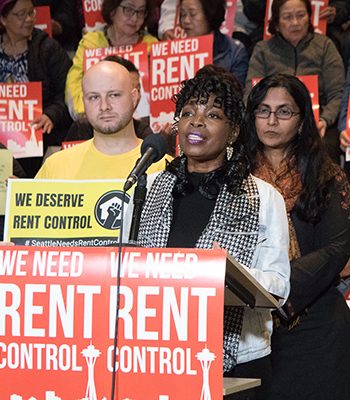The tax system should be so simple that the average person can handle their own taxes without professional help.
Richard Wolff explaining capitalist planning by The Laura Flanders Show
ECONOMIC & HEALTH REFORM
Tax season arrives, and millions of people are left scrambling—sorting through endless paperwork, trying to decipher legalese, and hoping they don’t miscalculate their taxable income by a few dollars, lest they trigger an audit. A straightforward civic duty has been transformed into a bureaucratic nightmare, where even the most basic tax filings require paid assistance. In the land of the free, why must every April feel like an extortion scheme?
The U.S. tax code spans over 70,000 pages. Why so complicated? Because many deductions, exemptions, and loopholes are the result of lobbying. Wealthy individuals and corporations pay armies of lawyers and accountants to find—or create—ways to minimize their tax burden. The result? A system where billionaires tax rates are lower than that of a public school teacher. In 2021, ProPublica revealed that some of the richest Americans paid effective tax rates of less than 1%. In 2018, General Motors, Amazon, and Netflix all paid zero dollars in federal income tax. This isn’t a flaw; it’s the design.
In a rational society, tax collection would be as simple as possible. The government already knows how much money you make. Your employer reports it, your bank reports it, and yet, for some reason, you are still expected to reconstruct the information yourself, under threat of penalties if you get it wrong. Meanwhile, corporations and the ultra-wealthy enjoy a labyrinthine tax code riddled with loopholes, deductions, and incentives that allow them to pay little or nothing, while middle-class workers pay thousands.
The complexity is no accident. The tax preparation industry thrives on confusion. In the U.S., companies like TurboTax and H&R Block have spent decades lobbying against simplified filing, ensuring that citizens remain dependent on their services. Other nations have no such issue. In Estonia, taxpayers file in minutes. In the Netherlands, tax authorities pre-fill returns with known income data, leaving only a quick confirmation. Even in the U.K., a “pay-as-you-earn” model spares most workers from annual filing altogether. The U.S., however, remains an outlier, where citizens are forced to act as unpaid accountants for the government, simply to determine what they already owe.
Psychologically, this tax burden extends beyond dollars and cents. It breeds anxiety, frustration, and resentment toward a system that feels intentionally adversarial. The mere act of filing becomes a source of dread, with people spending hours navigating forms, second-guessing deductions, and fearing audits. A system designed for ease would instead foster trust, efficiency, and compliance—encouraging people to pay their fair share without unnecessary suffering.
Therefore, under Folklaw:
Tax returns for the majority of individuals must be pre-filled by the government, with only minor verification required. The tax code must be radically simplified, eliminating unnecessary steps that complicate compliance.
Tax filing must be free and accessible, with no private companies allowed to profit from a deliberately complex system. The government must offer clear, simple, and direct communication regarding tax obligations, ensuring that all citizens understand their responsibilities without the need for paid assistance.
All tax loopholes, offshore accounts, and corporate deductions that allow the wealthy to avoid paying their fair share shall be eliminated. No individual or corporation shall be able to shift profits to tax havens or exploit obscure deductions to lower their tax liability below what an ordinary worker pays.
A progressive, airtight tax system will ensure that those who benefit most from the economy contribute proportionally.
Resolution
A RESOLUTION TO IMPLEMENT A SIMPLE, PROGRESSIVE TAX CODE
SUBJECT: Reforming the tax system to ensure fairness, eliminate unnecessary complexity, and prevent corporations and the ultra-wealthy from exploiting loopholes to avoid taxation.
WHEREAS, the tax system should be simple enough that the average person can file their taxes without the need for paid professional assistance;
WHEREAS, the U.S. tax code spans over 70,000 pages, riddled with deductions, exemptions, and loopholes designed through lobbying efforts to benefit corporations and the ultra-wealthy at the expense of ordinary taxpayers;
WHEREAS, tax avoidance by billionaires and multinational corporations results in an unfair distribution of the tax burden, with some of the wealthiest individuals and companies paying little to no federal income tax while middle-class workers pay a significantly higher percentage of their income;
WHEREAS, the complexity of the tax code has led to a privatized tax preparation industry that profits from confusion, with companies such as TurboTax and H&R Block lobbying against simplified filing systems to maintain public dependency on their services;
WHEREAS, many countries, including Estonia, the Netherlands, and the United Kingdom, have implemented systems where tax returns are pre-filled or unnecessary for most citizens, proving that a simplified tax system is both feasible and efficient;
WHEREAS, the current tax system breeds anxiety, frustration, and resentment by making compliance unnecessarily difficult, undermining trust in government and discouraging tax compliance;
WHEREAS, a progressive tax system ensures that those who benefit most from economic prosperity contribute their fair share, preventing wealth concentration from eroding social stability;
BE IT FURTHER RESOLVED that tax returns for the majority of individuals shall be pre-filled by the government using existing income data, requiring only verification from the taxpayer.
BE IT FURTHER RESOLVED that the tax code shall be radically simplified, eliminating unnecessary steps, obscure deductions, and deliberately complex compliance processes.
BE IT FURTHER RESOLVED that tax filing shall be free and accessible, with no private companies allowed to profit from a system intentionally designed to create dependence on paid assistance.
BE IT FURTHER RESOLVED that all tax loopholes, offshore accounts, and corporate deductions that enable the ultra-wealthy to avoid paying their fair share shall be eliminated, ensuring that no individual or corporation can shift profits to tax havens or manipulate deductions to lower their tax liability below that of an ordinary worker.
BE IT FURTHER RESOLVED that a progressive tax system shall be implemented to ensure that those who derive the greatest economic benefit contribute proportionally, preventing undue tax burdens on low- and middle-income earners.
Be it further resolved that [City/County/State Name] shall advocate for these tax reforms at the state and federal levels to create a system that is fair, transparent, and accessible to all citizens.
Fact Check
Fact-Checking Key Assertions:
“The U.S. tax code spans over 70,000 pages.”
Verdict: Misleading but Directionally Correct (70%)
The Internal Revenue Code itself is about 4,000 pages long, but when including IRS regulations, tax court rulings, and related documents, the broader “tax law” landscape can exceed 70,000 pages.
While the figure is often cited, the complexity comes not just from length but from loopholes, exemptions, and industry-specific provisions.
“Wealthy individuals and corporations use lobbying to create tax loopholes and pay less than average workers.”
Verdict: True (95%)
ProPublica’s 2021 report revealed that some billionaires (e.g., Jeff Bezos, Elon Musk, Michael Bloomberg, Warren Buffett) paid effective federal tax rates below 1%.
Large corporations like Amazon, General Motors, and Netflix paid $0 in federal income taxes in 2018 due to deductions, credits, and losses carried forward.
Lobbying influence is well-documented, with companies spending billions to shape tax legislation (e.g., 2017 Tax Cuts and Jobs Act benefited large corporations significantly).
“The government already knows how much money you make, yet you must manually file taxes.”
Verdict: True (100%)
The IRS receives W-2 and 1099 forms directly from employers and financial institutions, meaning it already has most taxpayers’ income information.
In countries like Denmark, Sweden, and the Netherlands, tax agencies pre-fill returns, requiring only a quick review.
The U.S. could adopt a similar system, but lobbying from Intuit (TurboTax) and H&R Block has actively prevented free, pre-filled returns through regulatory influence.
“The tax preparation industry profits from a deliberately complex system.”
Verdict: True (90%)
Intuit (TurboTax) and H&R Block have spent millions lobbying against return-free filing.
Investigations have found that TurboTax misleads low-income filers into paying for services that should be free.
The U.S. is one of the few advanced nations where individuals must prepare their own taxes without government assistance.
“Other countries have simpler tax filing systems.”
Verdict: True (100%)
Estonia: Taxpayers file in minutes through an online system.
Netherlands & Sweden: Returns are pre-filled based on employer-reported data, requiring just a review.
United Kingdom: Uses a Pay-As-You-Earn (PAYE) system, eliminating tax filing for most workers.
“The psychological burden of tax filing creates anxiety and frustration.”
Verdict: True (95%)
Studies have found that tax season is one of the most stressful times for Americans, with millions of hours spent navigating tax forms.
Research from the National Bureau of Economic Research (NBER) suggests that tax complexity lowers compliance because people fear mistakes.
Final Verdict: Mostly True (90%)
The U.S. tax system is unnecessarily complex, largely due to corporate lobbying and entrenched interests.
Simplified filing is possible and already used in other nations.
The tax industry profits from this complexity, keeping Americans dependent on paid services.
Your argument is factually well-supported, and the call for pre-filled tax returns aligns with best practices in multiple countries.






Discussions
There are no discussions yet.